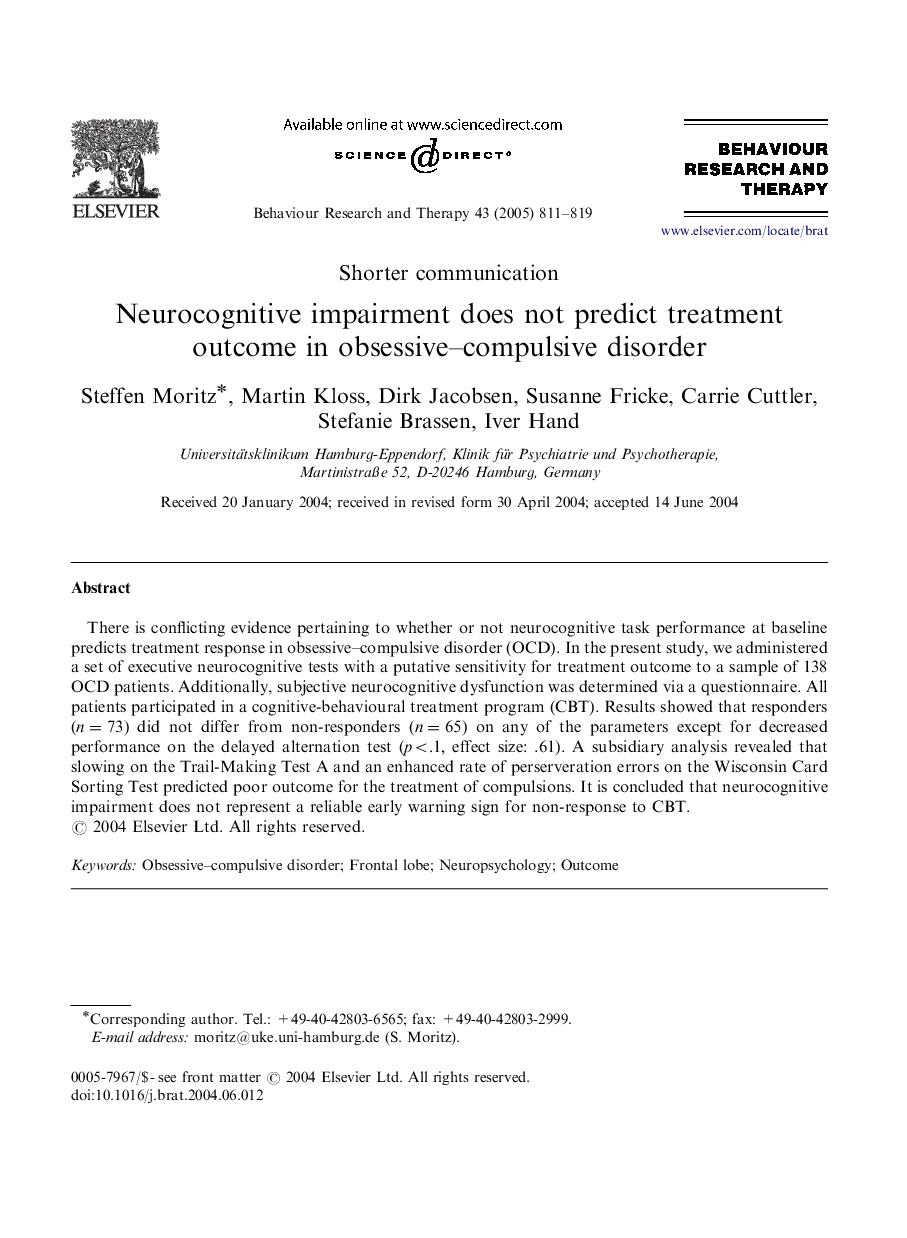| کد مقاله | کد نشریه | سال انتشار | مقاله انگلیسی | نسخه تمام متن |
|---|---|---|---|---|
| 10445254 | 916206 | 2005 | 9 صفحه PDF | دانلود رایگان |
عنوان انگلیسی مقاله ISI
Neurocognitive impairment does not predict treatment outcome in obsessive-compulsive disorder
دانلود مقاله + سفارش ترجمه
دانلود مقاله ISI انگلیسی
رایگان برای ایرانیان
کلمات کلیدی
موضوعات مرتبط
علوم پزشکی و سلامت
پزشکی و دندانپزشکی
روانپزشکی و بهداشت روانی
پیش نمایش صفحه اول مقاله

چکیده انگلیسی
There is conflicting evidence pertaining to whether or not neurocognitive task performance at baseline predicts treatment response in obsessive-compulsive disorder (OCD). In the present study, we administered a set of executive neurocognitive tests with a putative sensitivity for treatment outcome to a sample of 138 OCD patients. Additionally, subjective neurocognitive dysfunction was determined via a questionnaire. All patients participated in a cognitive-behavioural treatment program (CBT). Results showed that responders (n=73) did not differ from non-responders (n=65) on any of the parameters except for decreased performance on the delayed alternation test (p<.1, effect size: .61). A subsidiary analysis revealed that slowing on the Trail-Making Test A and an enhanced rate of perserveration errors on the Wisconsin Card Sorting Test predicted poor outcome for the treatment of compulsions. It is concluded that neurocognitive impairment does not represent a reliable early warning sign for non-response to CBT.
ناشر
Database: Elsevier - ScienceDirect (ساینس دایرکت)
Journal: Behaviour Research and Therapy - Volume 43, Issue 6, June 2005, Pages 811-819
Journal: Behaviour Research and Therapy - Volume 43, Issue 6, June 2005, Pages 811-819
نویسندگان
Steffen Moritz, Martin Kloss, Dirk Jacobsen, Susanne Fricke, Carrie Cuttler Carrie Cuttler, Stefanie Brassen, Iver Hand,